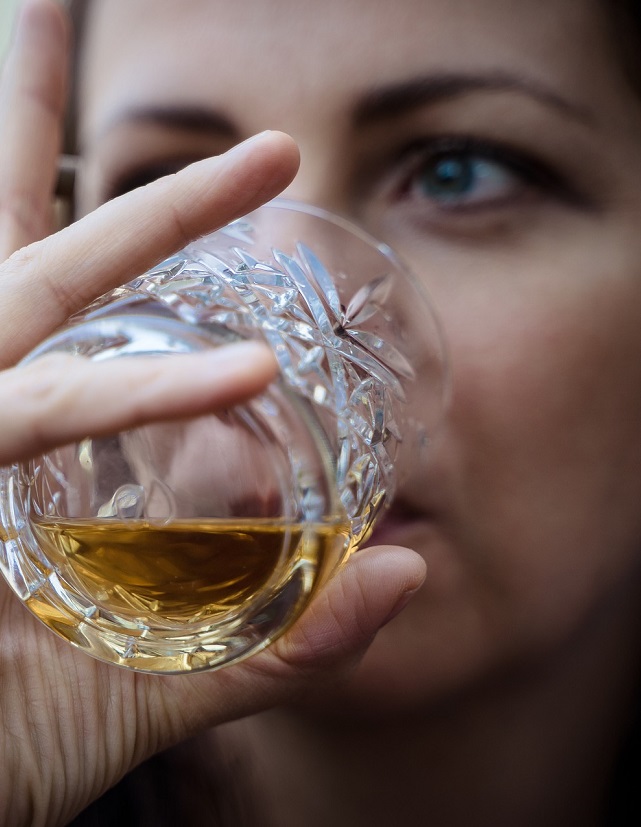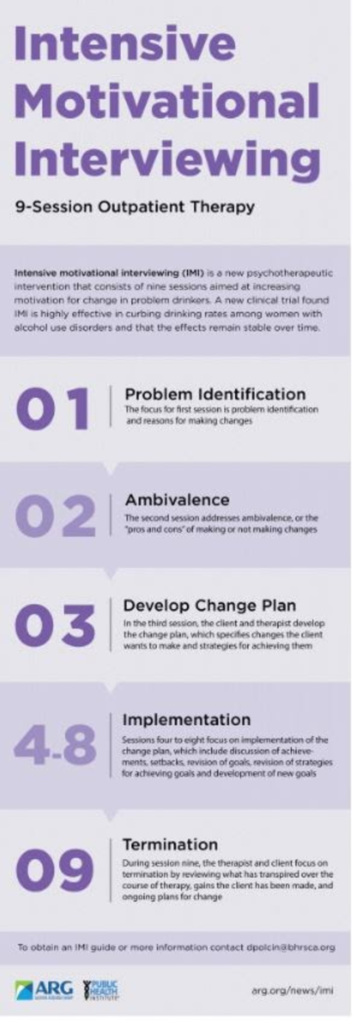Demonstrating an Effective Treatment for Women with Problem Drinking
Highlights

Studies from PHI’s Behavioral Health and Recovery Studies found that Intensive Motivational Interviewing (IMI) represents a new, effective intervention that curbs how much women with alcohol problems drink during and after treatment.
30% decrease in heavy drinking days among women treated with IMI
14% increase in abstinence from drinking, 12 months after IMI treatment
-
Focus Areas
Alcohol, Tobacco, Drugs & Mental Health, Women, Youth & Children -
Issues
Alcohol
Studies have shown that women with alcohol disorders tend to have more severe problems related to their drinking than men. Women progress more quickly from the first time they drink to the development of alcohol-related issues to the need for treatment. Research also shows that women have higher mortality from alcohol-related accidents, and enter treatment with more serious medical, psychiatric, and social consequences—but alcohol treatment interventions for women have shown only minor to moderate improvements that decline over time. Despite these specific risks for women drinkers, there have been few studies on alcoholism treatment options specifically for women.
But a clinical trial in July 2019 from PHI’s Alcohol Research Group changed that. The ARG trial showed that a treatment called Intensive Motivational Interviewing (IMI), a program pioneered by ARG’s senior scientist Douglas Polcin, resulted in women effectively curbing their problem drinking and maintaining the change. ARG’s trial found that IMI produced fewer drinking days and fewer heavy drinking days than the comparison group, and that women who were heavy drinkers made the most significant positive change in curbing their drinking. A second ARG study that November identified the characteristics of women drinkers who would likely benefit from IMI.
 Remarkably, IMI treatment consists of just nine sessions in which women meet with a trained therapist to identify life changes they want to make and develop strategies to implement those changes. In the trial, 80 percent of women in the IMI group completed seven to nine sessions, a higher attendance than most treatment programs where a 50 percent dropout rate within the first month is the norm. The high completion rate may follow because the treatment helps build self-efficacy and self-esteem and addresses relationship problems, parenting issues, personal trauma and other issues in addition to women’s problem drinking.
Remarkably, IMI treatment consists of just nine sessions in which women meet with a trained therapist to identify life changes they want to make and develop strategies to implement those changes. In the trial, 80 percent of women in the IMI group completed seven to nine sessions, a higher attendance than most treatment programs where a 50 percent dropout rate within the first month is the norm. The high completion rate may follow because the treatment helps build self-efficacy and self-esteem and addresses relationship problems, parenting issues, personal trauma and other issues in addition to women’s problem drinking.
“IMI is unique in that it offers a treatment protocol that participants found fit within their busy lives and at the same time provides greater support across a range of issues to help them meet and sustain their goals over the long term.” Douglas Polcin, Ed.D, senior scientist at ARG and originator of IMI.
The ARG trial demonstrates that a practical, effective treatment works especially quickly and successfully for women with problem drinking. The trial will inform therapists and treatment centers nationwide about this tool to help women in recovery.
See the studies:
- Heavy Drinking among Women Receiving Intensive Motivational Interviewing: 6-Month Outcomes
- Characteristics of Women with Alcohol Use Disorders Who Benefit from Intensive Motivational Interviewing
Work With Us
You change the world. We do the rest. Explore fiscal sponsorship at PHI.
Support Us
Together, we can accelerate our response to public health’s most critical issues.
Find Employment
Begin your career at the Public Health Institute.
